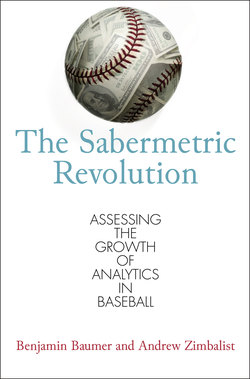Описание книги
From the front office to the family room, sabermetrics has dramatically changed the way baseball players are assessed and valued by fans and managers alike. Rocketed to popularity by the 2003 bestseller Moneyball and the film of the same name, the use of sabermetrics to analyze player performance has appeared to be a David to the Goliath of systemically advantaged richer teams that could be toppled only by creative statistical analysis. The story has been so compelling that, over the past decade, team after team has integrated statistical analysis into its front office. But how accurately can crunching numbers quantify a player's ability? Do sabermetrics truly level the playing field for financially disadvantaged teams? How much of the baseball analytic trend is fad and how much fact? The Sabermetric Revolution sets the record straight on the role of analytics in baseball. Former Mets sabermetrician Benjamin Baumer and leading sports economist Andrew Zimbalist correct common misinterpretations and develop new methods to assess the effectiveness of sabermetrics on team performance. Tracing the growth of front office dependence on sabermetrics and the breadth of its use today, they explore how Major League Baseball and the field of sports analytics have changed since the 2002 season. Their conclusion is optimistic, but the authors also caution that sabermetric insights will be more difficult to come by in the future. The Sabermetric Revolution offers more than a fascinating case study of the use of statistics by general managers and front office executives: for fans and fantasy leagues, this book will provide an accessible primer on the real math behind moneyball as well as new insight into the changing business of baseball.
